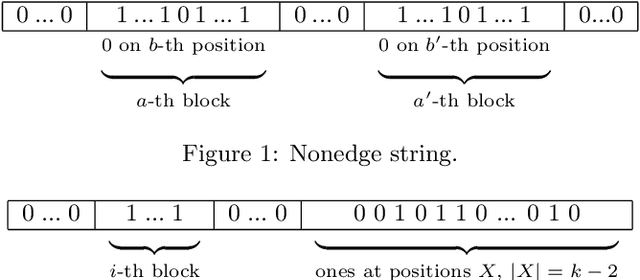Arkadiusz Socała
Approximation and Parameterized Complexity of Minimax Approval Voting
Jul 26, 2016

Abstract:We present three results on the complexity of Minimax Approval Voting. First, we study Minimax Approval Voting parameterized by the Hamming distance $d$ from the solution to the votes. We show Minimax Approval Voting admits no algorithm running in time $\mathcal{O}^\star(2^{o(d\log d)})$, unless the Exponential Time Hypothesis (ETH) fails. This means that the $\mathcal{O}^\star(d^{2d})$ algorithm of Misra et al. [AAMAS 2015] is essentially optimal. Motivated by this, we then show a parameterized approximation scheme, running in time $\mathcal{O}^\star(\left({3}/{\epsilon}\right)^{2d})$, which is essentially tight assuming ETH. Finally, we get a new polynomial-time randomized approximation scheme for Minimax Approval Voting, which runs in time $n^{\mathcal{O}(1/\epsilon^2 \cdot \log(1/\epsilon))} \cdot \mathrm{poly}(m)$, almost matching the running time of the fastest known PTAS for Closest String due to Ma and Sun [SIAM J. Comp. 2009].
 Add to Chrome
Add to Chrome Add to Firefox
Add to Firefox Add to Edge
Add to Edge